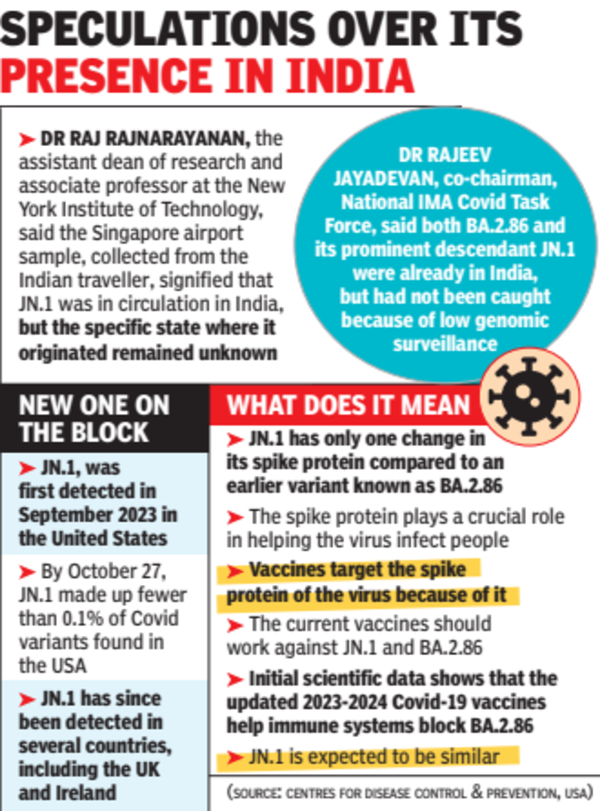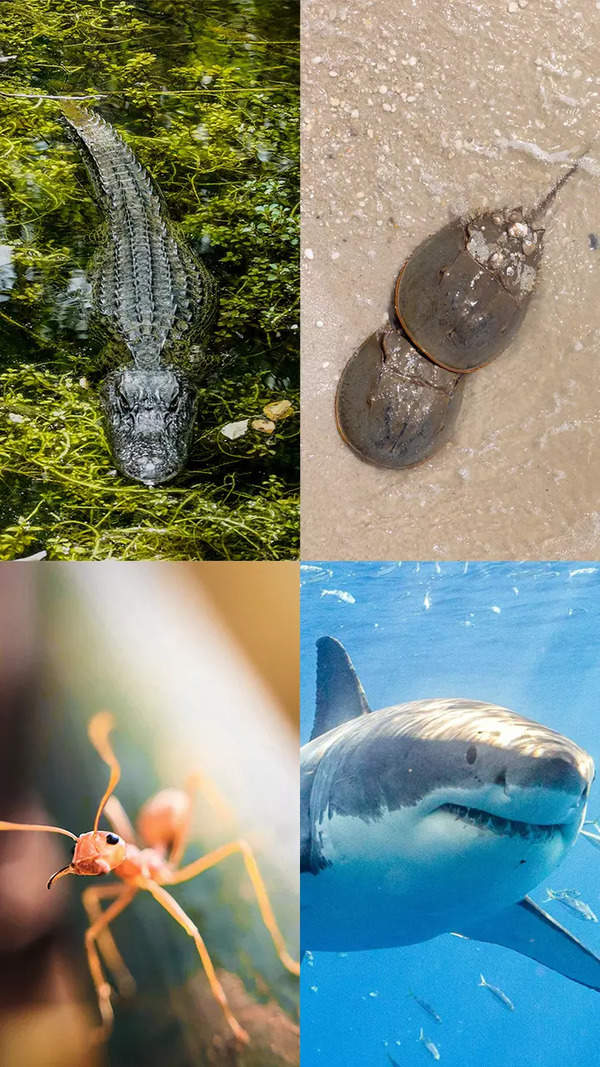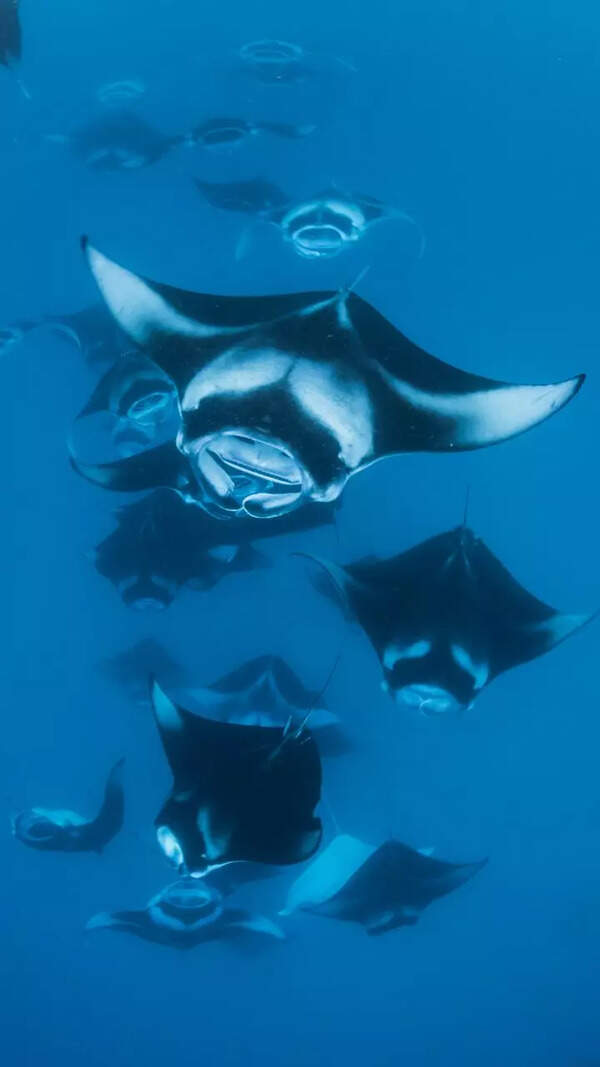Trending
This story is from November 11, 2023
Covid variant Pirola descendant found in Indian traveller in Singapore last month
The variant Pirola (BA.2.86) descendant, JN.1, has been detected in an Indian traveller in Singapore, leading to speculations that it might be present in India. The specific state where it originated remains unknown. The detection of JN.1 suggests a gap in India's Covid/genomic surveillance. However, experts believe that JN.1 is unlikely to outcompete the existing variants in India and is not more severe or contagious. Low genomic surveillance in India poses a challenge and could result in the oversight of newer variants. JN.1 has been detected in multiple countries worldwide.

Representative Image
PUNE: An Indian traveller was last month detected with Covid variant Pirola (BA.2.86) descendant, JN.1, in Singapore, igniting speculations that it might be present in India despite eluding detection within the country’s borders until now.
Dr Raj Rajnarayanan, the assistant dean of research and associate professor at the New York Institute of Technology and closely tracking Covid variants across the globe, told TOI, “JN.1 was picked up from an Indian traveller via airport surveillance in Singapore.The sample collection date was October 26. The Singapore airport sample, collected from the traveller, signifies that JN.1 is in circulation in India. But the specific state where it originated remains unknown.”

Reports from international scientists, based on GISAID data, revealed the detection of JN.1 in the Indian traveller. The discovery hints at a potentially critical gap in India’s Covid/genomic surveillance, as Pirola had previously gone undetected within the nation.
Dr Rajeev Jayadevan, co-chairman, National IMA Covid Task Force, said, “BA.2.86 and its sub-lineages are vastly different genetically from the prevailing XBB group of Covid variants, and its arrival has been a subject of considerable interest.”
“It is unlikely that BA.2.86’s descendant, JN.1 (BA.2.86.1.1), will outcompete the existing XBBs in India. JN.1 is already there in many countries, including France, UK and the US. But it is not any more severe, or more contagious than XBBs, and hasn’t displaced them yet. We surmise that both BA.2.86 and its prominent descendant JN.1 are already in India, but had not been caught because of low genomic surveillance,” he added.
Dr Jayadevan added, “Low genome sequencing in India poses a challenge, potentially resulting in the oversight of newer variants. Covid cases are currently on the lower side in India, but cases may start rising again because of newer variants, as in other countries. We have to be cautious because elderly citizens continue to remain vulnerable.”
A top scientist in India’s genome sequencing network said, “We need to know the traveller’s travel history to conclusively say that the person caught the strain in India. It is possible that he may have caught it from elsewhere before travelling to Singapore.”
Pirola has more than 20 mutations on the spike protein. Its descendant, JN.1, has an additional mutation on its spike protein, which is what SARS-CoV-2 uses to latch onto cells and make people sick.
JN.1 has been detected in around 29 countries, including Australia, Austria, Belgium, Bulgaria, Canada, China, Croatia, Denmark, Finland, France, Germany, Iceland, Ireland, Israel, Italy, Japan, Luxembourg, Netherlands, New Zealand, Norway, Poland, Portugal, Singapore, Spain, Sweden, Switzerland and Taiwan, among others.
Dr Raj Rajnarayanan, the assistant dean of research and associate professor at the New York Institute of Technology and closely tracking Covid variants across the globe, told TOI, “JN.1 was picked up from an Indian traveller via airport surveillance in Singapore.The sample collection date was October 26. The Singapore airport sample, collected from the traveller, signifies that JN.1 is in circulation in India. But the specific state where it originated remains unknown.”

Reports from international scientists, based on GISAID data, revealed the detection of JN.1 in the Indian traveller. The discovery hints at a potentially critical gap in India’s Covid/genomic surveillance, as Pirola had previously gone undetected within the nation.
Dr Rajesh Karyakarte, Maharashtra’s coordinator for genome sequencing and a senior scientist with B J Medical College, told TOI, “All circulating sub-variants in India are currently the sublineages of XBB.1.16 and XBB.2.3, albeit with additional mutations. Genome surveillance is still on in India, though of a small number of samples because Covid cases are quite low. The Indian traveller being detected with JN.1 in Singapore should not be a cause of concern because we have still not found either BA.2.86 or JN.1 in India and Covid cases continue to be very low here.”
Dr Rajeev Jayadevan, co-chairman, National IMA Covid Task Force, said, “BA.2.86 and its sub-lineages are vastly different genetically from the prevailing XBB group of Covid variants, and its arrival has been a subject of considerable interest.”
“It is unlikely that BA.2.86’s descendant, JN.1 (BA.2.86.1.1), will outcompete the existing XBBs in India. JN.1 is already there in many countries, including France, UK and the US. But it is not any more severe, or more contagious than XBBs, and hasn’t displaced them yet. We surmise that both BA.2.86 and its prominent descendant JN.1 are already in India, but had not been caught because of low genomic surveillance,” he added.
Dr Jayadevan added, “Low genome sequencing in India poses a challenge, potentially resulting in the oversight of newer variants. Covid cases are currently on the lower side in India, but cases may start rising again because of newer variants, as in other countries. We have to be cautious because elderly citizens continue to remain vulnerable.”
A top scientist in India’s genome sequencing network said, “We need to know the traveller’s travel history to conclusively say that the person caught the strain in India. It is possible that he may have caught it from elsewhere before travelling to Singapore.”
Pirola has more than 20 mutations on the spike protein. Its descendant, JN.1, has an additional mutation on its spike protein, which is what SARS-CoV-2 uses to latch onto cells and make people sick.
JN.1 has been detected in around 29 countries, including Australia, Austria, Belgium, Bulgaria, Canada, China, Croatia, Denmark, Finland, France, Germany, Iceland, Ireland, Israel, Italy, Japan, Luxembourg, Netherlands, New Zealand, Norway, Poland, Portugal, Singapore, Spain, Sweden, Switzerland and Taiwan, among others.
End of Article
FOLLOW US ON SOCIAL MEDIA











